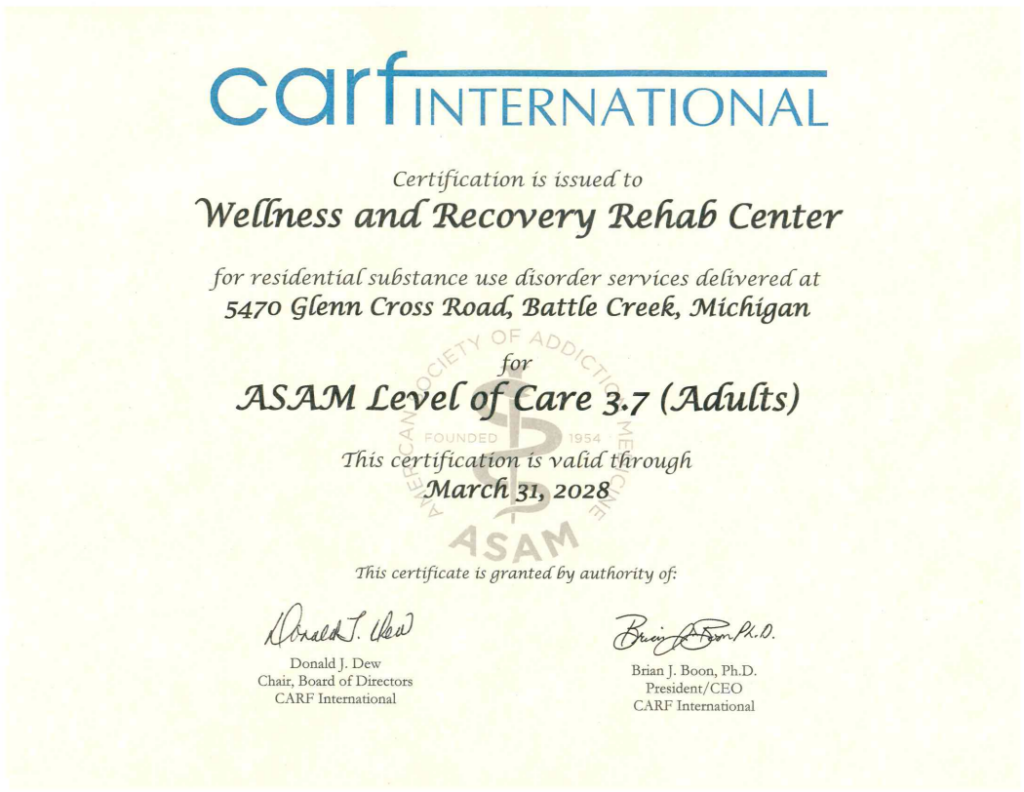
Medication-assisted treatment (MAT) is a comprehensive, evidence-based approach to treating substance use disorders (SUD), particularly opioid and alcohol addiction.
Addiction affects both the brain and body, making it difficult for individuals to stop using substances without support. Withdrawal symptoms and intense cravings can create significant barriers to recovery, often leading to relapse.
The good news is—you don’t have to go through it alone. At Wellness and Recovery, we provide a full continuum of care—from detox to inpatient to outpatient and alumni services. We’re here to create a sustainable path forward that empowers you or your loved one to thrive.

MAT addresses these challenges by alleviating withdrawal symptoms and reducing cravings, allowing individuals to focus on the psychological and behavioral aspects of healing.
This approach improves treatment retention and enhances overall well-being, helping patients rebuild their lives with greater confidence and stability.
Medication-assisted treatment in rehab recognizes that addiction is not solely a behavioral issue but a complex medical condition that alters brain chemistry, making it difficult to break free from substance dependence without targeted intervention.
Medication-assisted treatment in rehab primarily involves three key medications, each designed to address the physiological challenges of addiction:
A long-acting opioid agonist, methadone is highly effective in managing opioid dependence. By binding to opioid receptors in the brain, it reduces cravings and withdrawal symptoms without producing the euphoric high associated with opioid use.
Addiction doesn’t just affect the body—it impacts emotions, relationships, self-esteem, and daily functioning. True recovery goes beyond abstaining from substances; it involves addressing the underlying psychological and behavioral patterns that contribute to addiction.

Medication-assisted treatment in rehab is not a one-size-fits-all approach. Different programs provide varying levels of structure, support, and flexibility, ensuring that individuals receive care that fits their unique needs and lifestyles.
Inpatient care is ideal for individuals who need 24/7 medical and therapeutic support.
Outpatient care allows individuals to maintain work, school, and family responsibilities while receiving treatment.
These programs are specifically designed for individuals with opioid use disorder.
While medication helps manage withdrawal symptoms and stabilize brain chemistry, it does not address the underlying emotional, psychological, and behavioral patterns that contribute to addiction.
At Wellness and Recovery, this integrative approach helps patients rebuild their lives with confidence, resilience, and the support they need to sustain long-term recovery.
By clarifying these misunderstandings, individuals and families can confidently make informed choices about recovery.
Addiction is a chronic medical condition, not a failure of willpower. Just as individuals with diabetes may need insulin to stabilize their health, those recovering from opioid use disorder often benefit from medications that help regulate their brain chemistry and create space for long-term healing.
Substance use disorders exist on a spectrum, and recovery looks different for everyone. What matters most is choosing a treatment approach that aligns with an individual’s needs—not waiting until things get worse before seeking help.
Another common concern is that once someone starts MAT, they’ll be on it forever, but in reality:
Research shows that when combined with comprehensive behavioral therapy and structured aftercare, MAT significantly reduces relapse rates and improves overall treatment outcomes.

At Wellness and Recovery, medication-assisted treatment in rehab is part of a comprehensive approach designed to address the complexities of addiction and any potential co-occurring chronic pain and mental health conditions.
Recovery is not a one-dimensional process, and effective treatment must consider the whole person, their physical health, emotional well-being, goals, and experiences.
To ensure a well-rounded path to healing, Wellness and Recovery integrates MAT into a broader framework that includes:
Safely managing withdrawal is essential for beginning recovery on a strong foundation. Our Battle Creek, Michigan medical detox services provide 24/7 support, ensuring a more comfortable and medically supervised transition away from substances.
Addiction often coexists with mental health challenges such as PTSD, anxiety, and depression. Our trauma-informed care approach ensures that underlying emotional pain is addressed alongside substance use, rather than as an afterthought.
At Wellness and Recovery, treatment is tailored to meet each individual’s unique needs, integrating medication with evidence-based therapies and compassionate support. This approach recognizes that substance use is deeply connected to mental health, physical well-being, and emotional resilience.
Your recovery starts with one step. Reach out to Wellness and Recovery today to discover a treatment plan tailored to your journey toward health and freedom.
